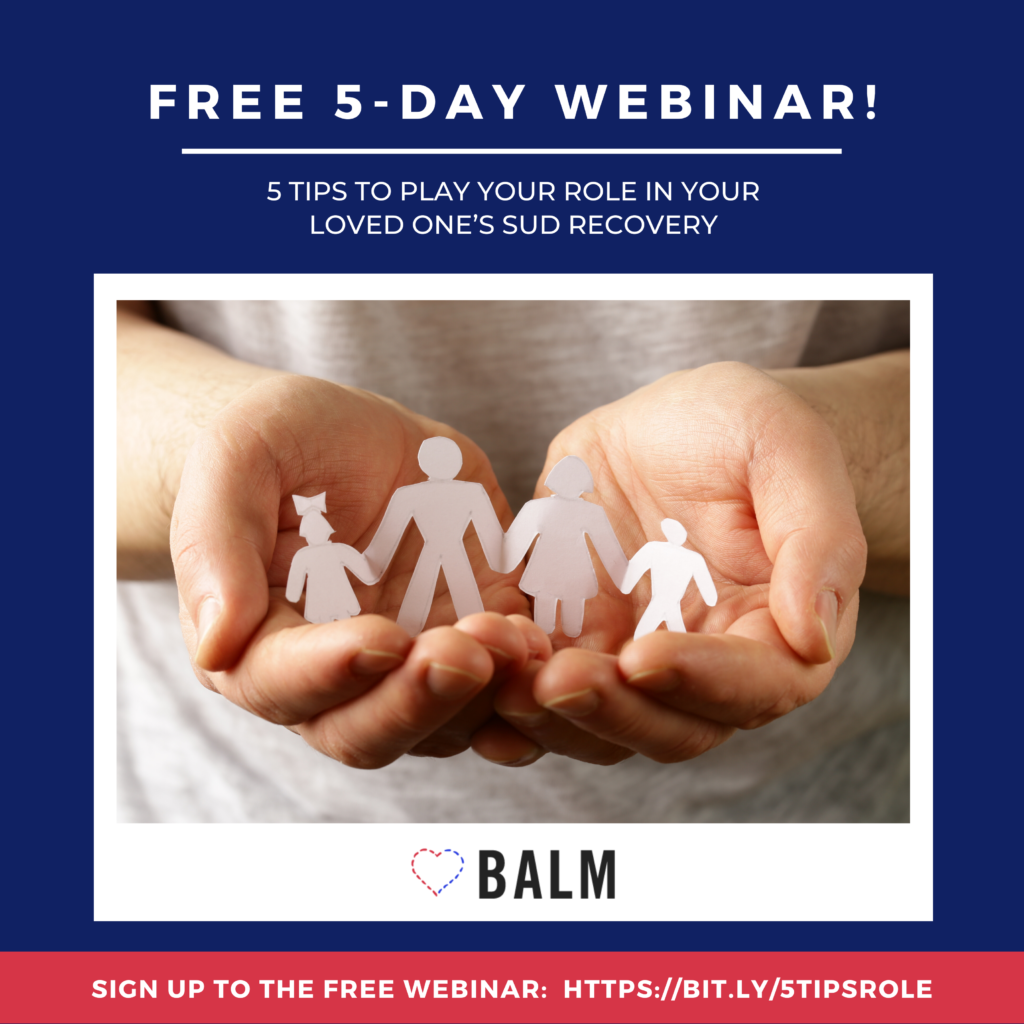The BALM Blog
See all posts5 Tips to Play Your Role in Your Loved One’s SUD Recovery

Substance use disorder does not only affect the person who is suffering from it. It also affects friends and family members.
This also translates to recovery.
The recovery journey of a person with SUD greatly affects families and friends. Both the suffering and the recovery cannot be done by the individual alone.
Lifetime commitment
Substance use disorder is a lifetime journey to recovery requiring a lifetime of commitment. Not just the individual’s problem, it is that of the whole family as well. In fact, family member support plays a big role in SUD and in other use disorder recovery.
This lifetime journey does not have a miracle cure. Sobriety is a challenge that has to be faced head-on daily. Your loved one with SUD needs to focus on the road to recovery, so the support and the role that you will play is very crucial in their success.
Uncertain times ahead
This type of family situation or challenge is not something we anticipated. We are not born with knowledge of how to provide them with the kind of support they need. Especially now that we are presently facing uncertainty due to the pandemic which is an unprecedented situation, what role do you play in your loved one’s recovery?
Here are some tips that you can start doing to help your loved one’s recovery.
1. Get involved and be more supportive of your loved one.
It’s easy to be supportive of loved ones when they are doing great, but what about if they are in the midst of a crisis? Getting involved in your loved one’s SUD includes learning all you can about the disorder and going the extra mile to helping them. Providing the necessary support is more challenging especially during these times of a pandemic.
You and your family must acknowledge that addiction is not the only thing you will be facing. As a result of your loved one’s SUD, they could also be in a lot of other issues such as debt, unemployment, health issues and rebuilding trust and relationships.
2. You need to understand that going to treatment isn’t going to fix everything that is going wrong in their life – or yours.
As we mentioned earlier, there is no quick-fix to recovery. There is no miracle cure. If you expect your loved one to come home from treatment being totally “cured”, that is an unrealistic expectation. Once home, you could help set your loved one to relapse, especially if you are not well informed as to which of your behaviors are most apt to help them and which are most likely to hurt. No matter how long they stay in treatment, the consequences of their addiction could continue to manifest even after they are home.
Understanding what the treatments or interventions can and cannot do will help you manage your expectations on your loved one’s journey to recovery, as well understanding your role once they are home.
3. Understand and lessen stress
Stress is considered an important factor in your loved one’s SUD. It is also a big factor in why they could relapse. That’s why you have to understand the stressors and how they will affect your loved one’s chances of full recovery. By acknowledging the stressors, you can guide them toward a healthy coping mechanism like exercise, meditation, or speaking with experts specializing in family recovery.
4. Practicing accountability
A healthy family holds each member accountable for their behaviors. Every member should be held accountable for what they say they will do or won’t. Part of creating a strong family is the ability to rely on each other. Be the person your loved one with SUD can rely on. It’s very important to support loved ones when they struggle. Helping one another will make your family closer and stronger together.
5. Find support for yourself
We always say that you can’t give others what you don’t have. In reality, providing support to your loved one with SUD can be exhausting. Your loved one is not the only one who needs to recover. You also need to recover, so make time to take care of yourself. Supporting a loved one with SUD is not easy. You can’t control their actions and decisions, though there are things you can do to make their chances of recovery greater. You cannot force them to change or recover. Remember, it’s okay to ask for help.
JOIN OUR FREE 5-DAY WEBINAR ON-DEMAND
The BALM® method teaches families how to engage their loved ones in evidence-based brief interventions that can encourage loved ones to enter and commit to recovery more quickly. The long term changed family behavior can also help a loved one avert or shorten slips and relapses.
To know more about how to play a positive role in your loved one’s recovery journey, we will be running a FREE on-demand, 5-day webinar series beginning May 11 from 7-8 pm CDT.

